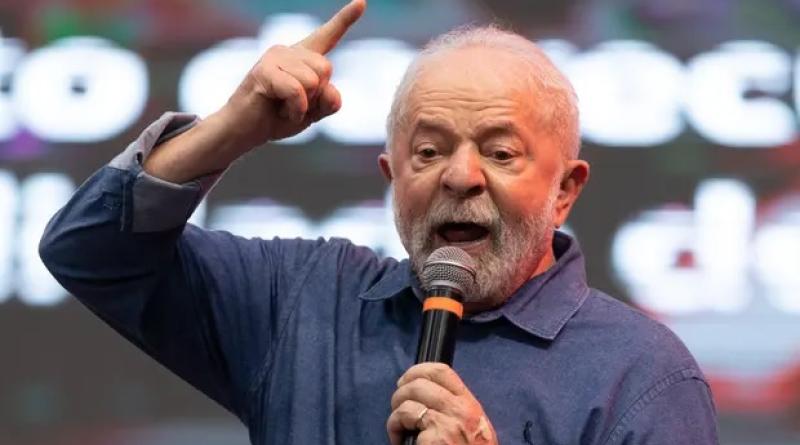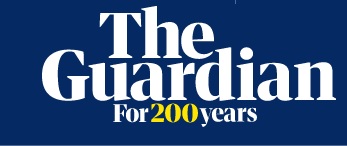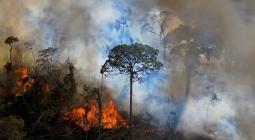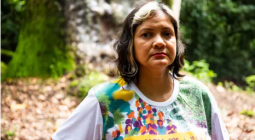Cop15: Lula calls on rich nations to give more to protect Earth’s ecosystems

Brazil’s incoming president adds voice to demand as Montreal talks restart after series of walkouts
Brazil’s incoming president, Luiz Inácio Lula da Silva, has backed calls for rich nations to provide more money to protect Earth’s ecosystems at Cop15 as talks restarted in Montreal after a series of walkouts.
More than 100 environment ministers have arrived at the biodiversity summit in Canada before a weekend of intense negotiations on this decade’s UN targets to protect the natural world.
On Thursday, several countries from the global north presented biodiversity finance pledges, including new contributions from Spain, the Netherlands and the US. Donors emphasised that the money must be matched by ambition on conservation in the final agreement, especially the draft target to protect 30% of Earth.
Virginijus Sinkevičius, the EU commissioner for the environment, ruled out the creation of a new biodiversity fund as part of the final agreement, a key demand for some developing countries at Cop15. “It is extremely important that there is no new fund. It took us seven to eight years to negotiate the Global Environment Facility,” he said. “Those talks about the new funds, I think they are misleading. They are not delivering any value so far.”
Lula’s incoming administration has written to the summit to underscore the need for more money for biodiversity in echoes of his speech at Cop27, where he pledged to make sure rich countries made good on their $100bn (£82bn) climate commitments to the global south.
Some delegations have sought to portray Brazilian negotiators at Cop15 as representatives of the outgoing president, Jair Bolsonaro, trying to cause chaos, after they played a leading role in Wednesday’s walkouts over money and the creation of a new biodiversity fund.
But the letter from Lula’s transition team appears to underscore support for Brazil’s negotiating team and other developing countries.
“How can the developed world recognise the magnitude of the triple planetary crisis and not respond to calls for greater ambition in biodiversity funding beyond the existing financing architecture through additional and innovative strategies and instruments?” the letter asks.
“Funding proposals put forth by developing countries to generate new and additional funding dedicated specifically to biodiversity-related initiatives need to be taken seriously. Developing countries hold the overwhelming majority of the world’s biodiversity and have a key role to play in this agenda.”
On Thursday morning, the Cop15 president, China, laid out its plans for the final few days of the summit, which is scheduled to end on Monday. They said the Canadian environment minister, Steven Guilbeault, would co-host talks on resolving key issues, which observers said was a sign that the co-hosts are working well together despite differences between the Chinese president, Xi Jinping, and Canada’s prime minister, Justin Trudeau.
Xi urged countries to work together to promote “harmonious coexistence between man and nature”, via video link on Thursday.
“As an old Chinese saying goes, ‘all living things should flourish without harming each other, all ways of life should thrive without hindering each other’. Let us work together to open a new chapter in building a community of all life on Earth and create a bright future of harmonious coexistence,” he said.
Huang Runqiu, China’s environment minister and the Cop15 president, wrote to countries on Thursday to explain the plans for the final few days of the summit. He has paired ministers from developed and developing countries to try to resolve three key issues: targets on conservation, money and the use of digital forms of biodiversity.
Li Shuo, a policy adviser for Greenpeace China who has been following the talks in Montreal, said environment ministers should start work to resolve differences that technical negotiations have not been able to finish over the last three years as soon as possible.
“Technical negotiators have exhausted their mandate. Ministers are now asked by the presidency to broker deals. Ministers need to get on the task now. There are still way too many issues to be solved. Leaving all of them to the last days will mean a protracted end game,” he said.
China held a meeting on Wednesday with the Cop15 heads of delegations after the walkouts, where there was understood to be “violent agreement” that money and the targets on preventing extinctions, restoring nature and new protected areas were linked. Negotiations restarted shortly afterwards, but the mood remains tense.
“Discussions on finance are key to the success of Cop15. So far, the truth is that a lack of international solidarity has stalled the negotiations,” said one negotiator.
“The European Union and other countries like Canada and Japan are directly responsible for this situation, by consistently trying to delay negotiations in order to avoid a discussion on a numerical target for resource mobilisation and by refusing to engage constructively on the basis of proposals made by developing countries.
“Those same developed countries are keen on ambitious numbers for the conservation targets, but won’t agree to any substantial numbers once we get to discussions on finance and ODA [overseas development aid].
“Let’s hope that attitude changes during the high-level segment.”
cover photo: Luiz Inácio Lula da Silva: ‘How can the developed world recognise the magnitude of the triple planetary crisis and not respond to calls for greater ambition in biodiversity funding?’ Photograph: Isaac Fontana/EPA






